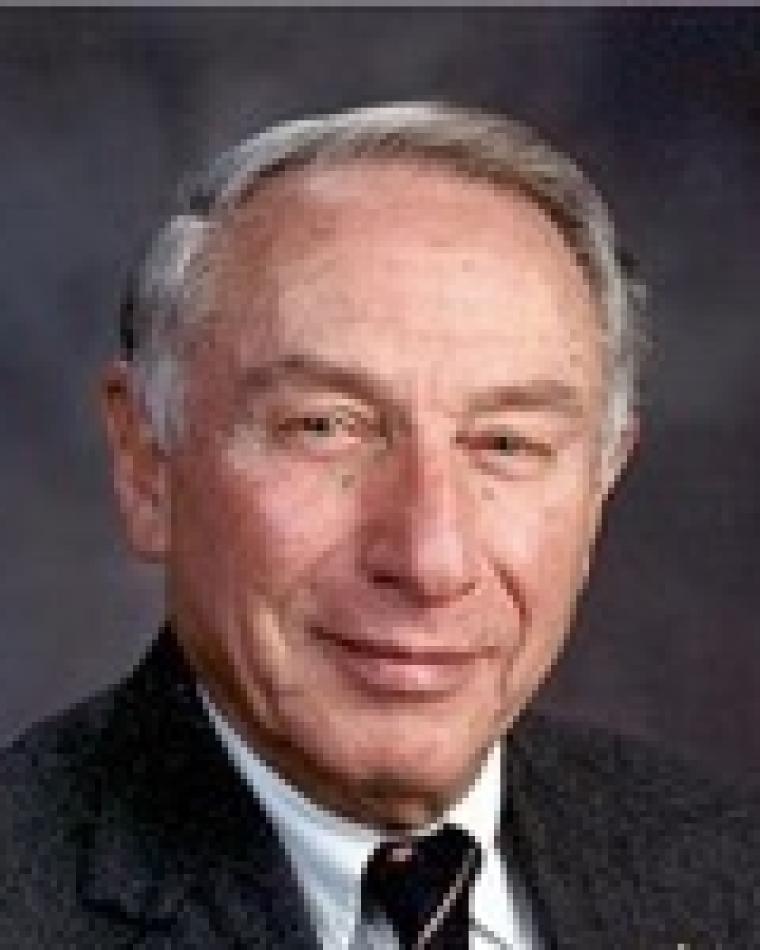
Floyd Dunn
Floyd Dunn
Contact Menu
IEEE Edison Medal recipient and Life Fellow, Floyd Dunn, a groundbreaking pioneer in the science of ultrasound and bioacoustics, died on January 24, 2015. A veteran of the WWII Battle of the Ardennes, he was 90 years old. His death comes 30 days after that of his wife of 64 years, Elsa Dunn. Floyd attended the University of Illinois at Urbana-Champaign in the Department of Electrical Engineering, arriving in 1946 as an undergraduate student on the GI Bill. He earned three degrees, including his PhD in 1956. For more than twenty years, he directed the Bioacoustics Research Laboratory that had been founded by his research advisor William J. Fry and his brother Frances J. Fry, in 1946. Floyd Chaired the Bioengineering Faculty from 1978 to 1982. He retired and accepted emeritus status in 1995. In 1996 he and Elsa moved to Tucson, Arizona where Floyd remained scientifically active. Floyd, in 1954, was a founding member of the IRE Professional Group on Ultrasonics Engineering (now the IEEE Transactions on Ultrasonics, Ferroelectrics, and Frequency Control) three-person Editorial Board (then called the Paper Review Board); the other two board members were Bill and Frank Fry. Floyd had an extraordinarily creative science and engineering career at the interface between diagnostic and therapeutic ultrasound and living systems, and his influential research significantly promoted diagnostic and therapeutic ultrasound. He was the first to quantify in vivo the temperature-dependent ultrasonic absorption coefficient, a pivotal finding that significantly influenced therapeutic ultrasound; the first to demonstrate that ultrasonic images resulted from structural protein constituents, a seminal finding that initiated worldwide research activities in ultrasonic tissue characterization; and the first to recognize the need to quantify the nonlinearity parameter in biological materials. His innovative experimental preparations showed that physical interactions of ultrasound in living systems occur under conditions where thermal and cavitation events were innocuous, thus demonstrating the control achievable in producing reversible and irreversible changes in living systems. Floyd’s revolutionary work contributed to the safety and efficacy of diagnostic and therapeutic ultrasound. This included determining ultrasonic thresholds for irreversible structural changes. These thresholds became the de facto worldwide standards from which government, academic and research bodies established diagnostic ultrasound safety criteria. Floyd was widely recognized for his professional achievements. He was a member of both the National Academy of Sciences and the National Academy of Engineering. He was the past President of the Acoustical Society of America. He held fellowships in seven professional associations and was a member of eight editorial boards. He was a recipient of the ASA Gold and Silver Medals as well as the AIUM William J. Fry Memorial Lecture Award in 1984 and the AIUM Joseph P. Holmes Basic Science Pioneer Award in 1990. He received the University of Illinois Senior Scholar and Distinguished Alumnus Awards, the Medal of Special Merit of the Acoustical Society of Japan, and was an honorary member of the Japan Society for Ultrasound in Medicine. For sustained leadership in biomedical ultrasound, Floyd Dunn stood alone. Devoting his career efforts to the subject for nearly six decades, he maintained a steady flow of productive research and built one of the largest organizations devoted to the field. Through leadership and participation in numerous organizations behind the scenes, he encouraged the development of the field at home and abroad. He was involved in the first major blossoming of biomedical ultrasound in the 1950s and 1960s including a few years when he nearly single-handedly kept the field alive. Today biomedical ultrasound is a major industry, and basic research in the field receives a significant fraction of the NIH budget. No single scientist is more responsible for this success than Floyd Dunn. Floyd Dunn is survived by his daughter, Andi Dunn, his son, Roo Dunn, and five grandchildren.
- 1980 IEEE Fellow
